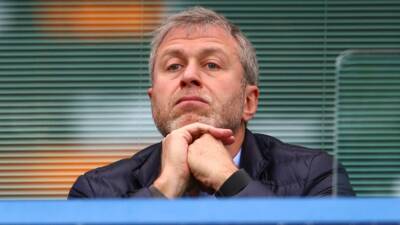Belated Russia sanctions show politics and sport cannot be kept apart
DUBAI: Among the many consequences of the Russian invasion of Ukraine has been the death knell for keeping sport and politics separated.
For years the concept has been trotted out whenever convenient for authorities such as the International Olympic Committee, FIFA or UEFA.
But history is full of examples of politics sticking its nose into sport, and of sanctions that followed. Who can forget boycott of the Moscow Olympics in 1980 by 66 countries, led by the US, or the reciprocal boycott by 16 countries from the Eastern Bloc of the Los Angeles Olympics four years later?
Even further back, politics interfered in football in the 1930 World Cup, the first occasion the event was held, with the participation of just 13 countries due to the distance between Europe and Uruguay, where the tournament took place.
There were other political issues; Yugoslavia faced a problem choosing its squad for the tournament after Croatian players refused to sing the Yugoslav anthem, with the team predominantly made up of Serbian players to avoid the issue.
Six decades later, Yugoslavia was in the news again.
Just prior to Euro 92 in Sweden, the war-torn country was ejected from the tournament as it slowly disintegrated into Bosnia and Herzegovina, Croatia, the Republic of Socialist Macedonia, Montenegro, Serbia and Slovenia.
It was a historical precedent, and the first suspension by UEFA.
Astonishingly, Denmark came in as an 11th hour replacement and went on to win the trophy, beating Germany 2-0 in the final.
The Yugoslav Wars apart, Europe has mostly seen relative peace in the last 50 years, until the conflict in Ukraine.
At first, FIFA and UEFA dithered and dragged their feet, as had the IOC for years, before having no option




